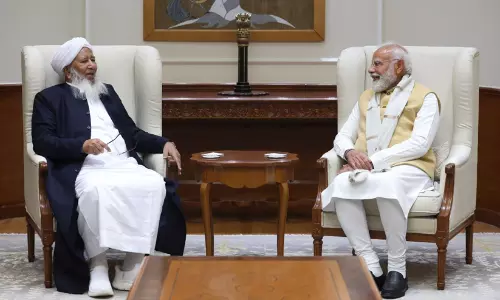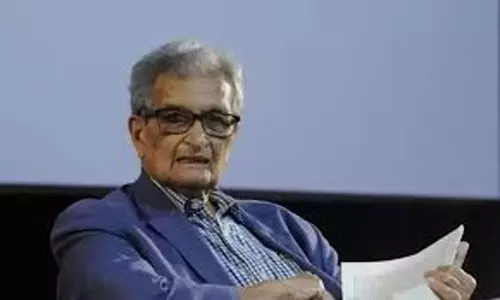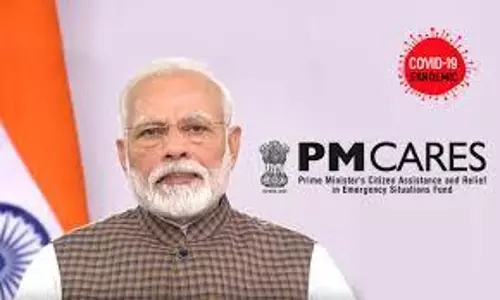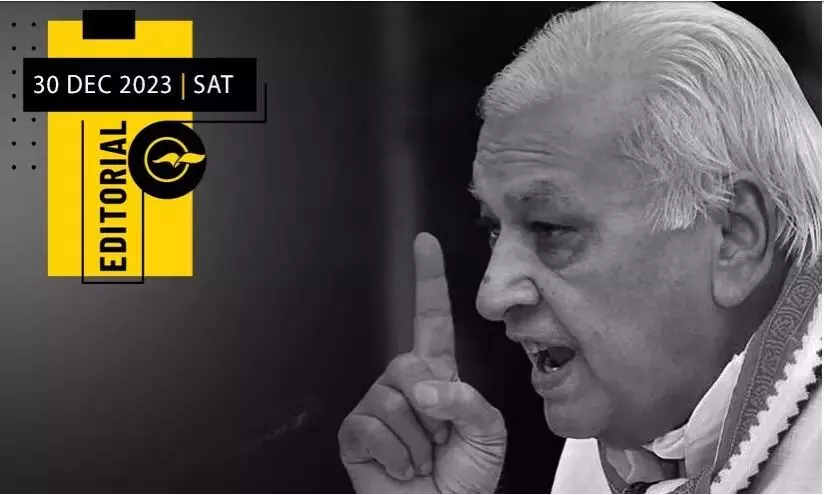
Beware, the governor's game continues
text_fieldsThe efforts of Kerala Governor Arif Mohammed Khan to saffronize universities in the state using his position as chancellor have been widely discussed. The student agitation against the governor for nominating Sangh Parivar members to the senates of Kerala and Calicut universities was unprecedented in the history of the state. The governor's authoritarian response to the student agitation also led to widespread protests across the state. However, the governor is in no mood to refrain from moving ahead with his plans. The letter sent from Raj Bhavan last week to the registrars, directing them to immediately provide representatives from the universities to the search committees of the appointment of vice-chancellors in eight universities in the state, is part of this. New vice-chancellors are due to be appointed in Kerala, MG, KUSAT, Kannur, Agriculture, Fisheries, Malayalam, and APJ Abdul Kalam Technological universities. Arif Mohammed Khan has sent the University Amendment Bill, which was brought in to avoid unnecessary interference by the governor in the appointment of vice-chancellors, to the President without signing it. Before the final decision of the High Court on this matter, the governor is planning to find a new search committee. If the appointment is done in the current method, it will be easy for him to find vice-chancellors who are sympathetic to the Sangh Parivar. In other words, Raj Bhavan is now trying to install Sangh Parivar nominees at the helm of numerous universities in Kerala.
The Governor is the constitutional head of the state. Apart from that, the Governor is also the spokesperson of the state government, regardless of the party in power. That is why the Governor reads the policy statement of the government without any changes, even when political differences exist. That is the norm of the country. Even P. Sathasivam, who was appointed by the Modi government to the Kerala Raj Bhavan, did not violate that norm. However, since Arif Mohammed Khan took charge, the Raj Bhavan has been functioning as another opposition office continuously. This is not the case only in Kerala. The Raj Bhavans in all opposition-ruled states are often like the offices of the central government and the BJP. The disruptions and confrontation arising from this can be sensed from Tamil Nadu and West Bengal. Arif Mohammed Khan is also in the same line from the beginning. Earlier, he had announced that he would not read the part containing criticism of the central government in the policy statement in the assembly. This had led to major disputes. Finally, he had to change it. Even when the first Pinarayi government, with the support of the opposition, presented a resolution against the Citizenship Amendment Act in the assembly, the governor came to the scene with opposition. Later, when the government went to the Supreme Court against the law, he created another problem by pointing out a legal issue in it. Once he realized that the argument that the government could not go to court against the central law without his permission, which was the real head of the government, was a worthless shot, he had to withdraw himself from the dealings. After that, the Governor has started the program of blocking the bills passed by the Legislative Assembly and sending them to the President at the last moment. After all this, the honourable governor is directly participating in the education saffronization programs of the central government.
It needs to be remembered that the actions of Arif Mohammed Khan come in the context of the systematic introduction of Hindutva's extremist nationalism, including the symbols and practices that led to mass killings and violence against minorities into classrooms. Kerala is ruled by a government that has not only openly opposed the curriculum reforms being carried out by the NCERT and others but has also put forward alternative content. Although the shortcomings and weaknesses in the state's higher education sector have been pointed out many times, no one can deny the reality that we are far ahead of other states. The governor is now trying to destroy this model and establish Hindutva's political interests in its place. This move must be resisted by all, regardless of government or opposition.























